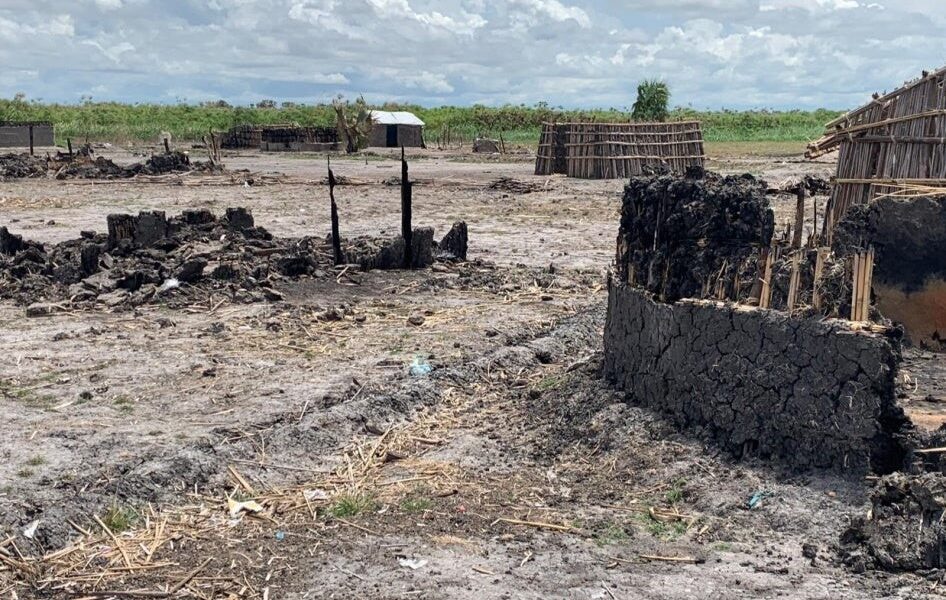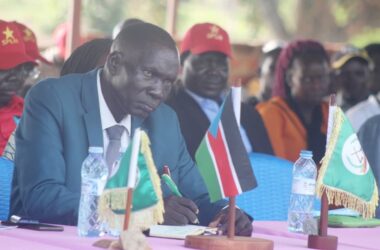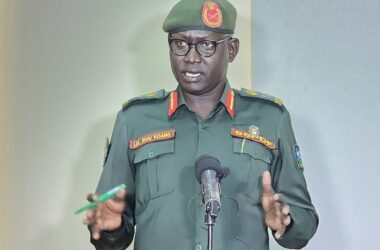By Staff Writer
Three years after brutal attacks on civilians in Leer and other areas of southern Unity state, South Sudan’s authorities have failed to hold perpetrators accountable.
Human Rights Watch (HRW) said on Tuesday, that lack of justice for these grave crimes is fueling a dangerous cycle of impunity and further abuses in the region.
“The lack of meaningful justice for the most serious crimes in southern Unity is giving rise to impunity that drives new cycles of abuse,” stated Nyagoah Tut Pur, South Sudan researcher at Human Rights Watch.
Between February and May 2022, attacks in Koch and Mayendit, targeted civilians and their property, primarily in Leer and parts of Koch and Mayendit counties.
“Survivors of the horrific violence in southern Unity have lived for years with the consequences and deserve justice,” the Human Rights Watch research, noted.
HRW’s research, which included interviews with 98 displaced individuals in Leer County in May and July 2022, revealed a pattern of organized violence.
According to the report, police, army, wildlife rangers, and allied local youth militias killed, beat, and raped civilians, and looted livestock and essential goods in opposition-controlled areas.
HRW documented 48 killings, including vulnerable individuals such as older people and those with disabilities. Witnesses recounted horrific incidents, including the burning alive of civilians in their homes and public executions.
Sexual violence was widespread and systematically used as a weapon of war. UNMISS documented 131 cases of rape, including gang rape, and the UN Commission on Human Rights in South Sudan found that sexual violence was planned and tolerated by commanders.
The HRW’s interviews revealed the rape of girls as young as 8 and women as old as 72. Women and girls were also abducted and subjected to sexual slavery.
The HRW’s findings corroborate those of United Nations in South Sudan (UNMISS) investigations and ceasefire monitors.
UNMISS estimates that the violence, rooted in power struggles between county commissioners and opposition commanders vying for control over trade routes and tax revenue, resulted in the deaths of at least 173 civilians.
Furthermore, joint government forces and aligned militias engaged in widespread destruction and looting of civilian property, including the burning of homes and the theft of tens of thousands of cattle, devastating livelihoods. Aid facilities, crucial for the vulnerable population, were also pillaged and burned.
Despite the gravity of these crimes, accountability remains elusive. A government-established commission of inquiry in April 2022 never made its findings public. While some implicated officials were dismissed in 2024, no prosecutions have been initiated HRW noted.
A mobile court, deployed to Leer in April 2025 with UNMISS support to address a backlog of criminal cases, lacks the jurisdiction to prosecute war crimes or crimes against humanity, the very crimes committed in Leer in 2022.
HRW urged South Sudanese authorities to take concrete steps towards accountability, including publishing the findings of the Leer investigation and ensuring credible, independent prosecutions for those responsible for serious violations of international law.
While South Sudan has made some progress in establishing transitional justice mechanisms, such as the Commission for Truth, Reconciliation, and Healing and the Compensation and Reparations Authority, the crucial Hybrid Court for South Sudan, intended to try the most serious crimes, remains stalled.
“The unchecked violence in Leer was not an isolated event, but part of a recurring cycle of violence that is fueled by impunity,” Pur said.
“South Sudan’s leaders need to provide a meaningful justice response to prevent further atrocities, prosecute those responsible, and ensure that survivors can receive adequate redress and start a process of healing.” He added.
HRW emphasizes that delivering justice for the atrocities in southern Unity is not only a matter of upholding the rights of victims but also a critical step in breaking the cycle of impunity and preventing future abuses in South Sudan.



